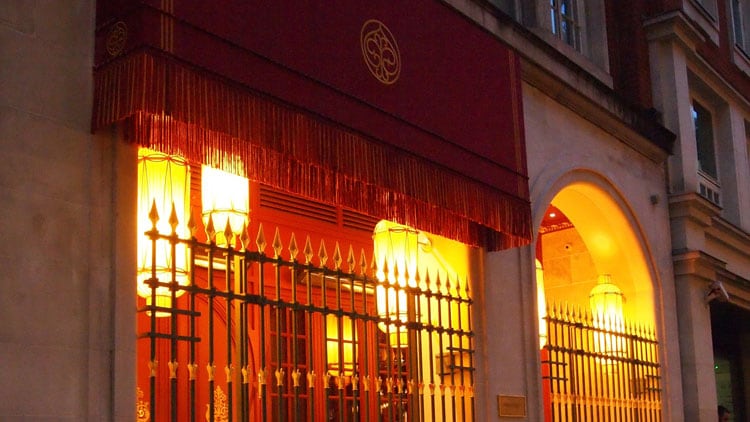At a glance
- Park Chinois was sold out of administration to entities connected to its former finance director, Imtiaz Haque.
- The restaurant faced significant trading disruptions due to the Covid-19 pandemic, rising costs, and local competition.
- The purchaser acquired the business for £200,000 and assumed liabilities totaling £6.9m.
- The sale safeguards all 75 jobs, though targeted redundancies are planned to reduce fixed costs.
- New leadership and operational changes are intended to stabilize and promote growth, including strategic pricing and menu revisions.
The business and assets have been acquired by related entities Le Soleil Enterprises Limited and Izamaiyah Limited, which are connected to Imtiaz Haque, a former finance director of Park Chinois.
As reported last week, Ian Corfield and Phil Armstrong of FRP Advisory were appointed as joint administrators of Park Chinois Limited on 22 July 2025.
The business had experienced ‘significant trading disruption’ during the Covid-19 pandemic, the administrators say, with its performance further impacted more recently by rising labour and operating costs, as well as strong competition in the local market.
Considering such ongoing pressures and uncertainty around securing new investment, the directors took the decision to place the restaurant into administration.
According to an administrator’s proposal filed to Companies House, the restaurant business and assets were sold for £200,000.
Under the deal, the purchaser also assumed liability of £5.4m owed to PCDS, a second charge holder based in Luxembourg, and £1.5m owed to the restaurant’s landlords.
“Park Chinois is a distinctive and established name in London’s fine dining scene,” says Corfield.
“While trading conditions have been extremely challenging, this transaction secures the future of the business, preserves employment, and provides continuity for its team and customers.”
According to administrators, the deal safeguards all 75 jobs at the restaurant.
However, Haque states in the administrator’s proposal that the business will undergo a labour restructuring to align staffing levels with the business’s current trading environment, which will include ‘targeted redundancies where necessary to reduce fixed costs’.
Haque lays out six measures to ‘ensure viability’ of the business going forwards.
They also include installing a new leadership team led by newly appointed CEO and COO Ilir Caushi and Erkan Toslak, both previously of Zuma Group; a restructuring of the entertainment offering within Club Chinois, the late-night bar below the restaurant; strategic pricing and menu engineering initiatives to enhance gross profit margins; and discussions with the restaurant’s landlord to negotiate reduced rental obligations over the next five years.
Haque adds that he is ‘confident’ the business will achieve breakeven within the next four to six months through the implementation of those measures.
“These proactive steps are expected not only to stabilise the business, but also to position it for future growth under revitalised leadership and a more sustainable operating model,” he says.
Founded in 2015, Park Chinois takes a similar approach to another Yau-founded concept Hakkasan by blending opulent décor, refined Chinese food, and club-style entertainment.
Yau has not been involved in the restaurant for several years.
Update (5/8/2025): In a statement shared to Restaurant following the publication of this story, a spokesperson for Mr Haque said: “We wish to clarify that Imtiaz Haque acted as a connected party on behalf of the secured lender and investment fund that acquired Park Chinois.
“His role in the transaction was to support and facilitate the acquisition process in coordination with these principal investors.
“Mr Haque’s involvement in the pre-pack administration was solely to enable the implementation of a new strategy focused on preserving the brand, protecting jobs, and maintaining operational continuity, while establishing a foundation for the long-term sustainability and turnaround of the business.”


